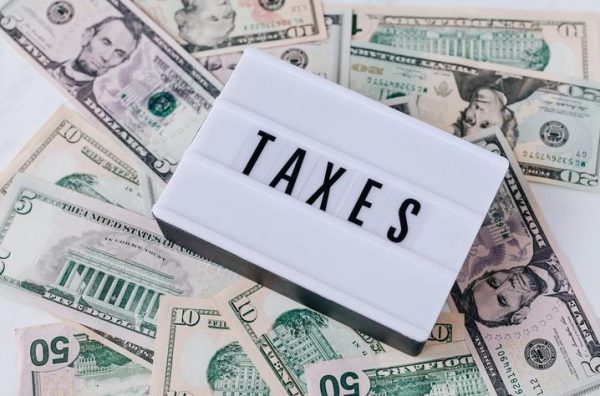Most startup investors aren’t aware of one of the biggest incentives for placing capital in qualified startups – the QSBS tax exclusion. This is a significant reason you should be looking at startup investment allocations over alternatives that have typically much steeper tax implications on any gains.
According to BNY Mellon “Recognizing that small businesses drive the economy, produce jobs and lead innovation, Congress has enacted several laws over the years designed to encourage investments in small businesses.”
“When shareholders sell or exchange their qualified stock, the exclusion can provide a break on capital gains tax—potentially up to 100% exclusion of tax on capital gains.
QSBS was designed to considerably decrease financial risk and tax liability by creating a powerful tax savings for startup shareholders. It was originally put into place in 1993 as a partial exclusion, and was expanded to 100% as part of the Small Business Jobs Act in 2010.” credit: Carta blog article dated 1/26/22
A startup is known as a qualified small business until found otherwise. There are some basic qualifications to meet the requirements for the status and resulting tax break.
The requirements are as follows:
– The company must be incorporated as a U.S. C-corporation.
– The company must have had gross assets of $50 million or less at all times before and immediately after the equity was issued.
– The company must not be on the list of excluded business types.
– A company can’t be qualified for the exclusion if its principal asset is the skill or reputation of one or more employees. That umbrella includes consulting, sports, law, health, and financial services, among many others. The list of businesses not allowed includes those in banking, farming, and hospitality services like restaurants.
Qualified Investor
While a qualified small business must be a C corporation, an investor wishing to claim the QSBS exclusion cannot be a C corporation.
In addition, the investor must have acquired the stock directly from the issuing company in exchange for money, property or services. Stock purchased on the secondary market does not qualify.
Holding Period
The investor must have held the stock for at least five years prior to the sale or exchange. There’s no requirement to file anything with the IRS when the stock is acquired. An investor who wants to take advantage of the QSBS exclusion can simply note on his or her tax return that the transaction is eligible for the Section 1202 exclusion.
It should be noted, there are specific rules regarding the holding period if the stock is acquired another way (e.g., as a gift or inheritance, stock options, restricted stock, convertible stock or debt, among other transfers). It is best to consult a tax professional prior to any transaction to determine the tax impact.
Bottom line: tax strategy and the QSBS should be a significant criteria in your investment strategy. While most investors get involved with startups because of the significant upside potential, tax treatment should always be part of your calculations.
According to BNY Mellon “Recognizing that small businesses drive the economy, produce jobs and lead innovation, Congress has enacted several laws over the years designed to encourage investments in small businesses.”
“When shareholders sell or exchange their qualified stock, the exclusion can provide a break on capital gains tax—potentially up to 100% exclusion of tax on capital gains.
QSBS was designed to considerably decrease financial risk and tax liability by creating a powerful tax savings for startup shareholders. It was originally put into place in 1993 as a partial exclusion, and was expanded to 100% as part of the Small Business Jobs Act in 2010.” credit: Carta blog article dated 1/26/22
A startup is known as a qualified small business until found otherwise. There are some basic qualifications to meet the requirements for the status and resulting tax break.
The requirements are as follows:
– The company must be incorporated as a U.S. C-corporation.
– The company must have had gross assets of $50 million or less at all times before and immediately after the equity was issued.
– The company must not be on the list of excluded business types.
– A company can’t be qualified for the exclusion if its principal asset is the skill or reputation of one or more employees. That umbrella includes consulting, sports, law, health, and financial services, among many others. The list of businesses not allowed includes those in banking, farming, and hospitality services like restaurants.
Qualified Investor
While a qualified small business must be a C corporation, an investor wishing to claim the QSBS exclusion cannot be a C corporation.
In addition, the investor must have acquired the stock directly from the issuing company in exchange for money, property or services. Stock purchased on the secondary market does not qualify.
Holding Period
The investor must have held the stock for at least five years prior to the sale or exchange. There’s no requirement to file anything with the IRS when the stock is acquired. An investor who wants to take advantage of the QSBS exclusion can simply note on his or her tax return that the transaction is eligible for the Section 1202 exclusion.
It should be noted, there are specific rules regarding the holding period if the stock is acquired another way (e.g., as a gift or inheritance, stock options, restricted stock, convertible stock or debt, among other transfers). It is best to consult a tax professional prior to any transaction to determine the tax impact.
Bottom line: tax strategy and the QSBS should be a significant criteria in your investment strategy. While most investors get involved with startups because of the significant upside potential, tax treatment should always be part of your calculations.



